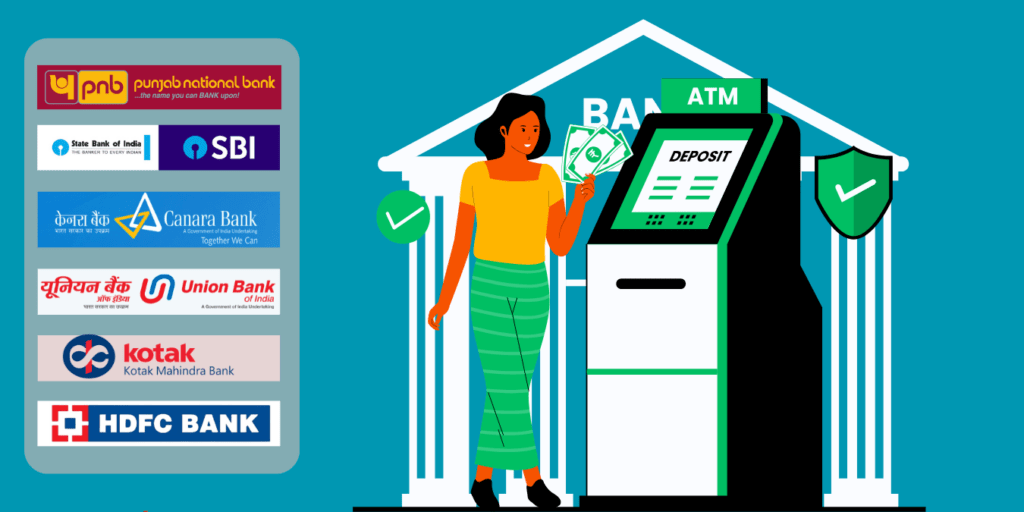
Fake job scams in India are looting ₹4,245 crore, preying on desperate job seekers with AI-driven traps. From WhatsApp lures to cloned websites, scammers are smarter than ever. Shocking stories—like a Mumbai woman losing ₹5.9 lakh—reveal the stakes.
You’re scrolling through LinkedIn late at night, exhausted from endless job applications. A message pops up—a recruiter from a top multinational offers your dream job with a salary twice what you expected. All they ask is a small “processing fee” to secure it. Sounds too good to be true? It is. Millions of Indians are falling into these traps, losing crores to fake job scams. Buckle up as we dive into the shadowy world of fake job scams India, uncovering surprising twists, real-life horror stories, and battle-tested strategies to protect from fake job offers. By the end, you’ll know how to spot frauds, turn the tables on scammers, and shield yourself in this digital battlefield. Keywords like job fraud prevention India aren’t just buzzwords—they’re your armor.
The Alarming Rise of Fake Job Scams in India: Latest Data That Will Shock You
Fake job scams aren’t just a nuisance—they’re an epidemic ravaging India’s job market. A recent McAfee report highlights a surge in scams, with job frauds leading the charge. Data from the Indian Cybercrime Coordination Centre (I4C) and CERT-In reveals digital frauds, including fake job offers, cost Indians ₹4,245 crore in the first 10 months of FY 2024-25, with over 2.4 million incidents reported. Here’s the suspenseful twist: job scams accounted for 15% of all cybercrimes from 2020 to 2023, per Hirist’s analysis.
A LocalCircles survey in May 2025 found 42% of WhatsApp users in India received fake job offers demanding payments. Platforms like Telegram and WhatsApp have become scammers’ playgrounds. The Future Crime Research Foundation (FCRF) reported an 84% surge in online job scams in 2023, with losses exceeding ₹1,200 crore, a trend accelerating into 2025. X posts from July 2025 estimate India loses ₹1,000 crore monthly to cyber scams, many tied to fake jobs originating in Southeast Asia. A 2023 RecruiteX Report revealed ~30% of job postings on free portals in India are fake or reposted without intent.
Why now? India’s digital economy, with over 800 million internet users, is a prime target. Urban unemployment rates near 8% fuel desperation, especially among fresh graduates. Scammers exploit this with AI-generated deepfakes, cloned websites, and ghost jobs—fake postings that vanish after collecting data or money. Kroll estimates 20% of job postings in India are suspected fake. Globally, the FTC reported $12.5 billion in fraud losses in 2024, a 25% jump, with job scams prominent. In India, victims range from techies to blue-collar workers, with Delhi Cyber Police busting scam rings in 2025.
The real surprise? Over 100,000 unregulated agents in India drive illegal migration and job frauds. A 2025 X post warned of Telegram “task job” scams luring victims with small payments before massive losses. Curiosity piqued? Let’s unravel how these scams operate.
How Fake Job Scams Operate: The Tactics Scammers Use
Picture this: An unsolicited WhatsApp message from a “recruiter” at Amazon or Meesho praises your profile, offering a high-paying remote job. They request a “refundable” fee for training or verification. You transfer the money—and they vanish.
Scammers in 2025 are sophisticated, using tactics like:
- Phishing and Impersonation: Fake websites mimic Naukri.com or Indeed, complete with deepfake interviews. A Reddit story from January 2025 exposed scammers cloning Myntra and Compass sites.
- Work-from-Home Lures: Promises of easy money for “tasks” on Telegram, escalating to crypto investments. In August 2025, a 54-year-old woman lost ₹1.6 crore to such a scam.
- Ghost Jobs and Overemployment Scams: Like Soham Parekh’s July 2025 case, where an Indian techie juggled multiple US jobs with fake resumes, exposing ethical failures.
- Overseas Job Frauds: Agents promise visas to non-existent countries like “Saborga.” A 2024 BBC report, still relevant in 2025, detailed men tricked into counting trains for fake railway jobs.
Real stories add the thrill: In Mangaluru, July 2025, two professionals lost over ₹10 lakh to separate scams. A Mumbai woman clicked an Instagram reel for a part-time job and lost ₹6.37 lakh in December 2024. An Indeed user in May 2025 shared a fake Python developer role demanding payments. These aren’t isolated—34% of entry-level job seekers are vulnerable, per reports. The surprise? Scammers use AI for personalized attacks, making them harder to detect. Knowledge is power—let’s arm you with protection tips.
10 Proven Ways to Protect Yourself from Fake Job Scams in India: Expert Tips
Here’s how to safeguard against fake job scams India and stay ahead:
- Verify the Source: Check the company’s official website or LinkedIn. Contact them via listed numbers. Randstad India advises sticking to verified platforms.
- Never Pay Upfront: Legitimate jobs don’t require fees. “Processing” or “training” payments are red flags, per Worksource Consultant.
- Spot Red Flags: Unsolicited WhatsApp offers, generic emails, or pressure to act fast. Indian Express experts highlight incorrect domains or no interviews.
- Research Thoroughly: Google the recruiter and job. Use Who.is for domain checks. Verify overseas job agents with the Ministry of External Affairs (MEA).
- Avoid Sharing Sensitive Info: Don’t share bank details or OTPs early. Indeed lists 17 common scams, including data theft.
- Use Secure Platforms: Job portals like Hirist or Naukri have scam alerts. Report suspicious posts immediately.
- Beware of Remote Job Scams: Economic Times warns of AI-generated job descriptions and phishing in 2025.
- Report and Seek Help: Dial 1930 for cybercrimes. File complaints on cybercrime.gov.in. CyberDost’s X post on World Population Day 2025 urges action.
- Educate Yourself on Trends: Follow I4C alerts. Norton lists 17 scams for 2025, like impersonation.
- Trust Your Gut: If it feels off, walk away. Consult trusted networks.
These steps can save you from heartbreak. But what if you’re already scammed?
What to Do If You’ve Fallen Victim: Recovery Steps and Prevention for the Future
You’ve transferred money—now what? Act fast. Report to the National Cyber Crime Reporting Portal (cybercrime.gov.in) within 24 hours for better recovery chances. Banks can freeze transactions if alerted quickly. In 2025, recoveries are improving; Delhi Police operations recovered funds in job scam busts. Join Reddit or X communities to share stories, like the user who exposed a fake placement group.
For prevention, enable two-factor authentication, use antivirus software, and educate family. India’s government is cracking down, with Telegram under scrutiny for scams.
Empower Yourself Against Fake Job Scams in India
Fake job scams in India are a billion-rupee menace, but with awareness, you’re unstoppable. From shocking stats like ₹4,245 crore losses to real stories of deception, we’ve uncovered the truth. Protect from fake job offers by verifying sources, never paying upfront, and reporting frauds. Stay curious, stay safe—your dream job awaits, scam-free.































